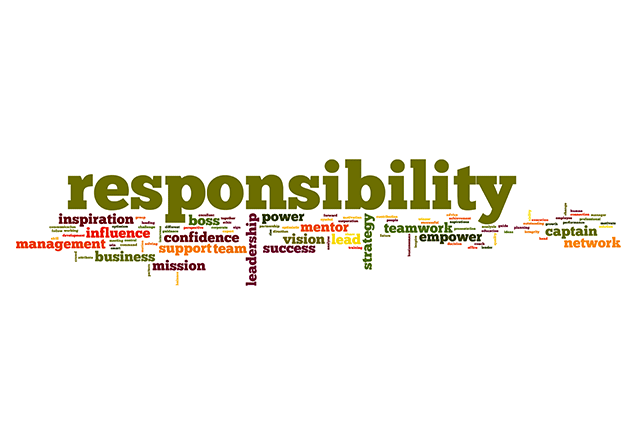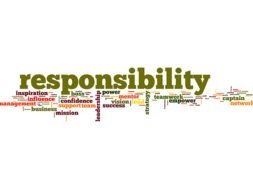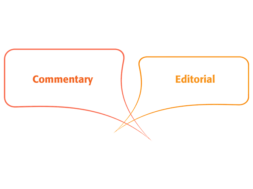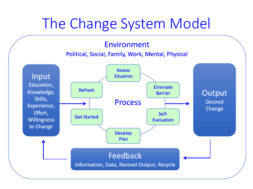
Stronger, Leaner: Curtailing Instruction and Operations Safely, Humanely and in Compliance
By Anthony S. Bieda, ASB34Policy Resources, LLC
Institutions that perform honorably and responsibly during a crisis project goodwill, fortify branding, and preserve financial and intellectual equity. COVID-19 may have few silver linings but serving as an opportunity to show honor and responsibility is arguably some concession for the displacement, anxiety, and other nasty side-effects.
Enterprises whose success depends on enlightened consumers making informed choices understand that sudden cessation of operations tarnishes their brands as well as those of similar businesses. In the career education sector, few and infrequent school closings have generated headlines like: “Sudden Campus Closure Leaves Students in Lurch,” “Notoriety and Now Closure,” and “Growing Price-Tag for College Shutdowns.”
Political adversaries of the sector are watching closely for the COVID-19 impacts on career colleges and schools. And so are state approval authorities, licensure boards, accrediting agencies, and the U.S. Department of Education.
Institutions confronting enrollment and financial calamity may consider strategies and plans that preserve honor and respectability while curtailing operations, suspending new enrollment, or even closing campus doors. Government oversight entities and accreditors – the triad – offer explicit guidance regarding acceptable ways to terminate instructional activities.
Political entities offer implied perspectives on acceptable school closures, most of which are grounded in “education is only a public good” ideology. Every crash landing of a proprietary institution, be it K-12 or post-secondary, reinforces the claim that only the government should be in the business of education. In other words, because government funding is limitless it can be available to failing institutions if they are publicly owned and operated!
Notwithstanding political considerations, proprietary colleges and schools have strengths and attributes that are valuable even in times of crisis. Equity and brand loyalty established through sustained, careful attention to students’ needs and insecurities generate recurring demands for enrollment. Reputation and profile are intangible assets that have value in the marketplace. As much as enrollment demand for some programs in some locations by some demographics will weaken, demand for other types of programs offered by responsive, customer-focused schools with agile programming teams will grow, strengthen, and endure. Institutions with those attributes, regardless of their current enrollment profile, must consider their market value and review sale or merger options to sustain instructional services.
Oversight authorities offer no guidance or explicit support for the sale of schools. Instead, they enumerate requirements applied to the closure, sale or teach-out of a campus. The requirements share a common thread: protect students and ensure their financial, temporal, and intellectual investments have not been squandered.
From ED.Gov, those requirements focus on responsible stewardship of Title IV/Federal Student Aid resources. The Department expects proper and accurate accounting of funding sources, timing, and amounts. It requires accurate and timely tracking of student enrollment, attendance, academic progress and persistence or completion. Teach-out plans and teach-out agreements are designed to ensure that if a displaced student transfers to another institution, the student aid resources can follow in a timely and hassle-free way.
At the state level, expectations focus on the preservation of student records and transcripts. State requirements vary in terms of duration of preservation and locale for storage. However, the responsible institution must assume the duration is “in perpetuity” and the locale, someplace where state education authorities can access physical or electronic documents. The approval authorities typically have required bonding remittances from proprietary schools to help offset student costs for transferring to another school. In addition, many states have encouraged or required articulation standards to facilitate the acceptance of academic credit between colleges and schools, regardless of proprietary or public status.
The accreditation community has a strong stake in protecting students who are displaced by campus closures. A common mandate for accredited colleges and schools is that “provision (be) made for enrolled students to complete the program either at that institution or at another acceptable institution (of comparable quality, integrity, rigor, etc.).” That includes preservation of student records, exhausting credit transfer opportunities with other accredited institutions on behalf of students, timely notification to students and direct, candid communications with state and federal authorities.
Penalties and sanctions imposed by federal and state authorities on individuals for improper campus closures include loss of eligibility to participate in Title IV programs, and loss of eligibility to own or operate a licensed school in each state.
Among accreditors, the sanctions include the debarment of individuals who have owned or operated schools that closed without adhering to an approved teach-out plan. In recent years, one accreditor has debarred 43 individuals for an average interval of 5.6 years. Another has imposed debarment on 12 individuals, ranging from 7 years in duration to indefinite. In all cases, the identities of those debarred are disclosed on the accreditors’ website and shared with state and federal authorities.
COVID-19 applied to career education is an opportunity to perform honorably and responsibly even while curtailing or ceasing instructional activities. Being attentive to the expectations of the Triad and other opinion leaders can help protect goodwill, fortify branding, and preserve entrepreneurial equity. Institutions that survive will become leaner, stronger, and more agile, making them better suited to embrace enrollment demand that manifests from great economic and workplace upheaval.
ANTHONY S. BIEDA, for more than 40 years, has served a leader and member of executive teams with primary responsibility for government relations, policy advocacy and organizational communications.
He has served in public and private higher education, local government operations and services, natural resources, telecommunications, and economic development.
Bieda has completed doctoral-level coursework in public policy at George Mason University in Virginia. He earned an MBA in accounting and finance from Regis College, and undergraduate degree at University of Northern Colorado in Journalism.
He recently served as executive director of the Kentucky Association of Career Colleges and Schools. He continues to serve clients in government relations, accreditation, strategic communications, and advocacy planning capacities. He is based in Louisville, KY.
Contact Information: Anthony S. Bieda // ASB34Policy Resources, LLC // 703-399-9172 // anthonysb34@msn.com // http://asb34policyresources.com/








